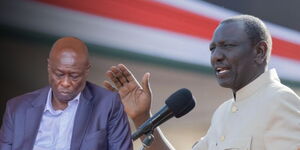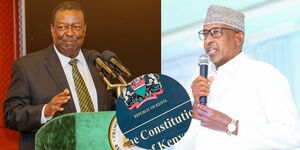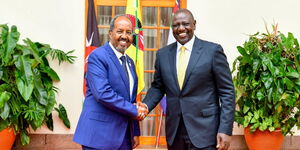President William Ruto’s administration will increase foreign borrowing after revising the 2023/24 financial year budget from Ksh3.7 trillion to Ksh3.9 trillion.
In the Budget Review and Outlook Paper (BROP) released by the Treasury on Sunday, the government has increased the amount to be borrowed from the foreign market from Ksh131 billion to Ksh449 billion, while cutting domestic borrowing to Ksh411 billion.
Treasury hopes to finance the increased budget using increased tax revenues and foreign borrowing which has been revised upwards.
Ruto rode to power on the promise of cutting reckless spending and borrowing but has since ramped up foreign and domestic loans since taking office.
Borrowing from the domestic market as promised by Central Bank Governor Kamau Thugge has dropped, though not at the initially projected Ksh316 billion.
The government will borrow Ksh411 billion domestically from Ksh583 billion that had been approved by parliament in June.
The government hopes to slow down interest rates and encourage lending to the private sector by cutting the uptake of debt from local banks.
Revised spending has been necessitated by adjustments in National Government spending.
In the budget, ministerial national government expenses had been allocated Ksh2.38 trillion but the amount has now been revised to Ksh2.4 trillion.
Additionally, the Treasury will spend Ksh1.3 trillion in interest and pensions up from the planned Ksh986 billion.
While the Treasury has increased the budget for National Government expenses, the equitable share sent to counties remains unchanged at Ksh385 billion.
Remarking on this, the Treasury accused County Governments of not looking for alternative ways to increase revenue as advised by the Constitution.
“County Governments may borrow in line with Article 212 (a) of the Constitution with guarantee from the National Government. However, since the advent of devolution, no County Government has leveraged this window to borrow,” County Governors were accused.












